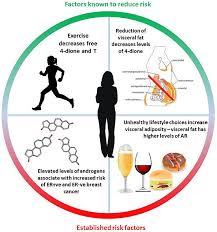Molecules Likely To Reveal Resurgence Risk Of Breast Cancer
ZMR NEWS
- 0
Even with the advancements made in modern medicine, breast cancer remains a guessing game for patients and doctors as they always live under fear of recurrence of the disease after initial rounds of treatment. New research in this disease could provide relief to this draining practice as now it appears that cells of breast cancer hold clues which will enable doctors to estimate the high risk cases that could have occurrence after 20 years. Though oncologists have long known that even a patient that is completely free of breast cancer could face substantial risk of getting the disease after a few years.

But they lack means to identify women at high risk and those that are unlikely to see any recurrence. But researcher Christina Curtis who is part of this new research on breast cancer stated that certain factors can help doctors identify women that are at risk of recurrence. Women that have ER-positive type of breast cancer have the highest odds of recurrence since the cancer is fueled by estrogen. Cancers that spread to multiple lymph nodes before diagnosis also fall into this high risk category. In their study researchers examined medical records of 3,000 women that had been diagnosed with breast cancer in 1977.
The researchers were able to recover molecular information about the cancers of 2,000 women from this group along with activity levels of genes linked to cancer and presence of specific genetic mutations. On putting the information together they discovered that in the long term only some women were in high risk group. Of them women whose breast cancer was of ER positive type but they tested negative for HER2 protein had 42 to 55% of recurrence in 20 years. Women with triple negative type breast cancer also were in high recurrence group of 20 years even though this cancer has no estrogen receptors. Recurrence for women with HER2 type happens within the first five years.
